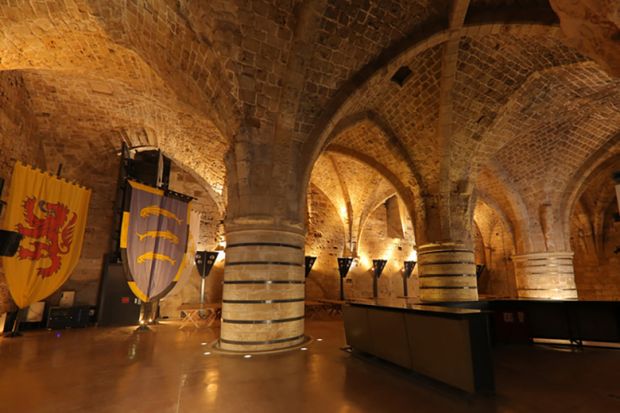The Crusader siege of Muslim-held Acre at the start of the Third Crusade was arguably the 12th century’s most remarkable and fascinating military engagement. Over the course of 22 gruelling months, it saw tens of thousands of western European Christians struggle to retake this strategically vital port city (today known as Akko, in northern Israel) from forces loyal to the great Muslim sultan, Saladin. It also appeared to break the precepts of military science. The Crusaders quickly found themselves trapped between Acre’s Muslim garrison and Saladin’s sizeable field army, and thus stood every chance of being crushed between these two forces. Nonetheless, the Christian investment endured through two crippling winters and was ultimately brought to a successful conclusion – after the arrival of the French and English kings, Philip II and Richard the Lionheart – with Acre’s surrender on 12 July 1191.
John Hosler’s book seeks to fill a significant gap in scholarship, given that until recently historians tended to skirt over the majority of the Acre siege, focusing only on its last three months after Philip’s and Richard’s arrival. This lack of attention was all the more surprising given that – in relative terms – the siege was widely documented by contemporaries, including eyewitnesses embedded either in the Crusader camp or Saladin’s entourage. More recently, the siege as a whole has received coverage in the course of a longer general history of the Crusades and some further examination in a Festschrift article, but these contributions did not negate the need for a close monographic study.
Hosler’s work concerns itself first and foremost with narrating the course of events, primarily from a military perspective. It has a number of strengths, including a reappraisal of the siege’s first set-piece confrontation, fought on 4 October 1189, and an appropriate emphasis on the contributions of lesser-known crusade leaders, such as Henry of Champagne.
However, when taken as whole, the book seems like a missed opportunity. Given the potential scope of the subject under consideration, the work is surprisingly brief, with the main text running to just 174 pages. Most of this is given over to empirical reconstruction and, while the narrative offered is generally reliable, Hosler’s reading of the sources sometimes lacks the requisite edge of penetrating critical insight. His assertion that Saladin was not party to the terms of Acre’s surrender in 1191, for example, depends on the partisan testimony of the sultan’s adviser, Baha al-Din Ibn Shaddad, who – as Hosler should have noted – had every reason to distance his master from this agreement.
More broadly, Hosler’s study is not driven by analytical enquiry. He does not take account of all recent scholarship on the siege and addresses only the most pressing and pertinent questions about the campaign in a somewhat cursory conclusion. Even here, the siege’s key distinguishing feature – the fact that the besieging Crusaders were surrounded by both Acre’s garrison and Saladin’s field army – is never properly developed or problematised, while Hosler’s sustained criticism of Saladin’s supposed failings as a military commander are largely predicated on a strategic assessment informed by hindsight. His book may bring the neglected siege of Acre to greater prominence, but it is far from a definitive study of this extraordinary event.
Thomas Asbridge is reader in medieval history at Queen Mary University of London.
The Siege of Acre, 1189-1191
By John D. Hosler
Yale University Press, 272pp, £25.00
ISBN 9780300215502
Published 15 May 2018
后记
Print headline: The fight of the century
